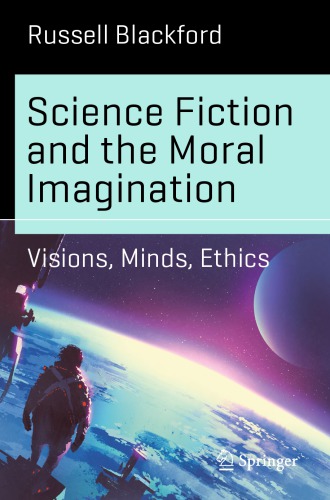

Most ebook files are in PDF format, so you can easily read them using various software such as Foxit Reader or directly on the Google Chrome browser.
Some ebook files are released by publishers in other formats such as .awz, .mobi, .epub, .fb2, etc. You may need to install specific software to read these formats on mobile/PC, such as Calibre.
Please read the tutorial at this link: https://ebookbell.com/faq
We offer FREE conversion to the popular formats you request; however, this may take some time. Therefore, right after payment, please email us, and we will try to provide the service as quickly as possible.
For some exceptional file formats or broken links (if any), please refrain from opening any disputes. Instead, email us first, and we will try to assist within a maximum of 6 hours.
EbookBell Team

4.3
8 reviewsIn this highly original book, Russell Blackford discusses the intersection of science fiction and humanity’s moral imagination. With the rise of science and technology in the 19th century, and our continually improving understanding of the cosmos, writers and thinkers soon began to imagine futures greatly different from the present. Science fiction was born out of the realization that future technoscientific advances could dramatically change the world. Along with the developments described in modern science fiction - space societies, conscious machines, and upgraded human bodies, to name but a few - come a new set of ethical challenges and new forms of ethics. Blackford identifies these issues and their reflection in science fiction. His fascinating book will appeal to anyone with an interest in philosophy or science fiction, or in how they interact.
“This is a seasoned, balanced analysis of a major issue in our thinking about the future, seen through the lens of science fiction, a central art of our time. Everyone from humanists to technologists should study these ideas and examples. Blackford’s book is wise and savvy, and a delight to read as well.”
Greg Benford, author of Timescape.